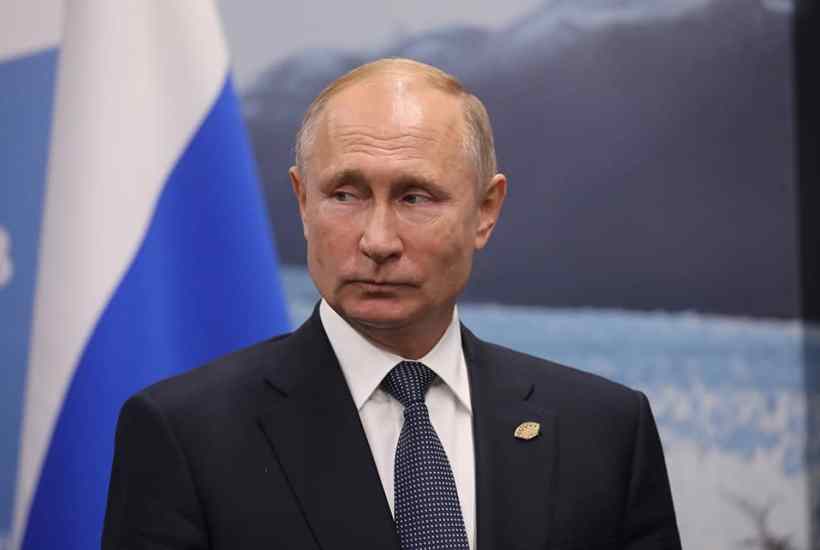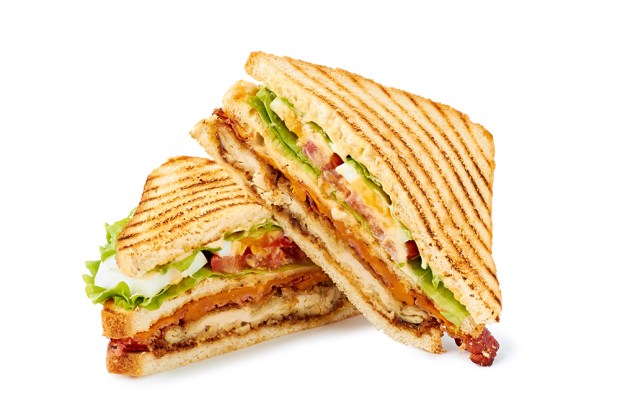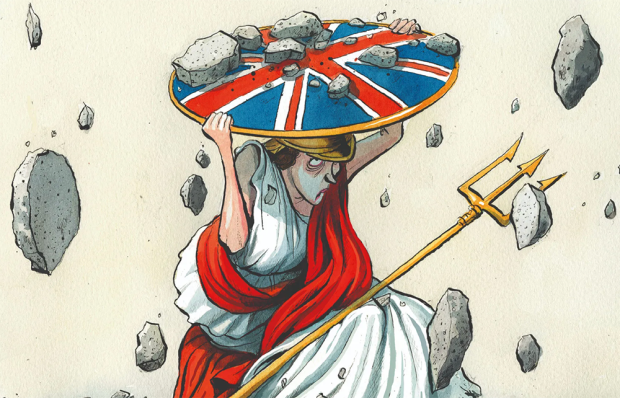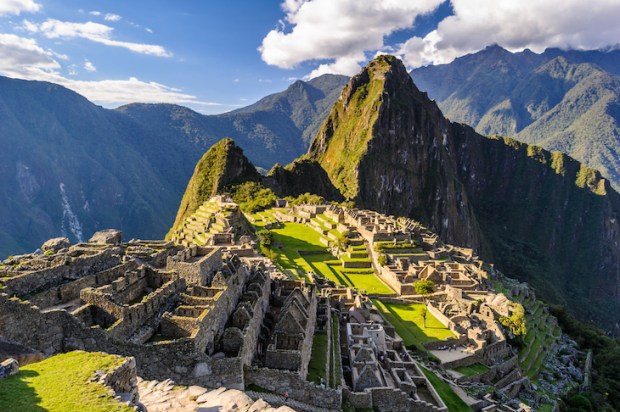I was interested to see that amid the Byzantine intrigues of embattled Conservative panjandrums, two Spice Girls have criticised the government. When the Spices manoeuvre politically, pundits sometimes cite my 1996 interview with the group in which they declared their Thatcherism and opposition to the single European currency. Such is their influence that it could be said they were precursors of Brexit itself, while their phenomenon was prophetic of this century’s Neronian-Trumpian merging of politics and showbusiness.
Anyway, this takes me back to the hilarity of the original encounter. It started when the Spices heralded ‘Girl Power’ and I wrote asking if I could debate Rousseau, Marx and Nietzsche with them. To my astonishment, they agreed. I was invited to a diabolical jamboree of howling teenagers – the Smash Hits awards – where backstage I encountered these booted, miniskirted, exuberant potentates in person. Whenever I asked a question, Mel B chanted ‘GIRL POWER!’ as I discussed Hayek with Victoria Adams (as she was then) and Keynesianism with Geri Halliwell. I quickly recognised the fierce political acumen of Geri and Victoria, helmswomen of the movement, who guided the Spiceworld towards the sweet spot where elections are won: centre-right. When Geri declared they were Thatcherites, I realised it was a Clause IV moment; when Victoria expressed Euro-scepticism, I felt the world shake (though it may have been Peter Andre winning Best Singer on stage). When the story hit, Downing Street rang to ask if I could arrange a photoshoot with PM John Major and the Spices outside No. 10 – what impertinence! When I met Tony Blair, soaring towards election triumph, he asked: ‘How can we get the Spice Girls back?’ It looks as if Labour has finally managed it.
I couldn’t beat that Spice Girls interview so I started writing history books about Russia instead. When the USSR started to disintegrate I rushed out to Georgia, Chechnya, Ukraine and Azerbaijan in time to see the fall of an empire. I spent time with warlords and presidents – essential for any historian. Whenever I got back to Moscow, I was debriefed by British and American ‘diplomats’ – spooks – who were so ignorant of what was happening outside Moscow that they asked: ‘Did you see any nuclear weapons? Who controlled them?’ If Ukraine had kept its nuclear weapons, things would be different now, and it turns out the breakup of the USSR was not as bloodless as we thought.
My first history book, a study of the partnership between Prince Potemkin and Catherine the Great, caught the attention of the Kremlin. Potemkin annexed the Tatar Khanate of Crimea in 1783, then in 1791 southern Ukraine. On publication, I was approached by apparatchiks of the new President Putin. Their boss, they said, was fascinated by Potemkin’s conquests of Crimea and Ukraine. This was 2000.
If Putin loses the war, he will be in danger from those closest to him. Six of the last 12 Romanov tsars died violently: Catherine’s husband, Emperor Peter III, was strangled by her friends the Orlov brothers – though the announcement officially blamed haemorrhoids. When Catherine invited D’Alembert to visit, he refused, joking: ‘I suffer from piles, a dangerous condition in Russia.’ Today, as the Kremlin magnates endure what Russian gangsters call a razborka(takedown), no one mentions ‘haemorrhoids’, but a number of grandees are ‘falling out of windows’.
Talking of tsars, Europe’s last tsar, Simeon of Bulgaria, is this week talking at the Cliveden Literary Festival, which I help organise. After Hitler murdered his father, Boris III, in 1943, Simeon became a child-tsar at the age of six, which makes him the last living leader from the second world war. He was deposed by Stalin in 1946. Fifty years later, Simeon Saxe-Coburg was elected Bulgarian prime minister. Many rulers from history started as elected presidents and then made themselves monarchs, but only two – Simeon and Sihanouk of Cambodia – did the reverse.
On the subject of the Spice Girls and ‘girl power’, the great thing about writing a book about world history told through families is that women are so prominent: from empresses Zenobia, Wu and Iyoba of Benin to Artemisia Gentileschi, Billie Holiday, Marilyn Monroe – and, yes Thatcher.
Got something to add? Join the discussion and comment below.
Get 10 issues for just $10
Subscribe to The Spectator Australia today for the next 10 magazine issues, plus full online access, for just $10.
You might disagree with half of it, but you’ll enjoy reading all of it. Try your first month for free, then just $2 a week for the remainder of your first year.














Comments
Don't miss out
Join the conversation with other Spectator Australia readers. Subscribe to leave a comment.
SUBSCRIBEAlready a subscriber? Log in